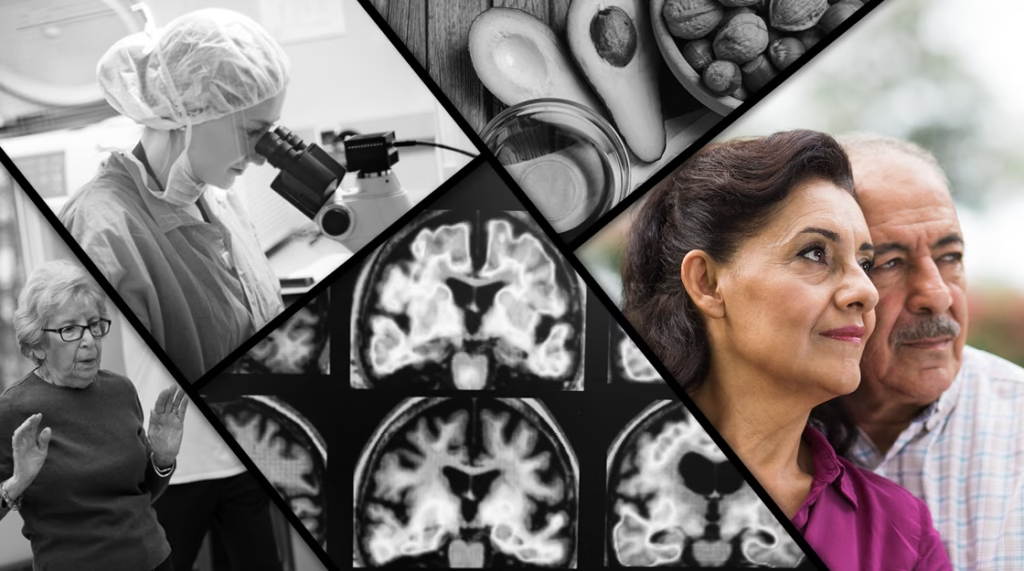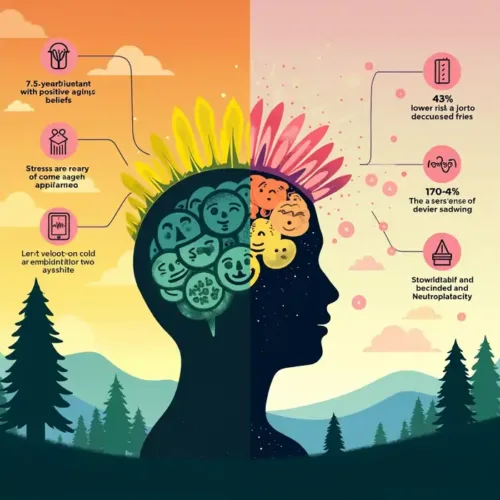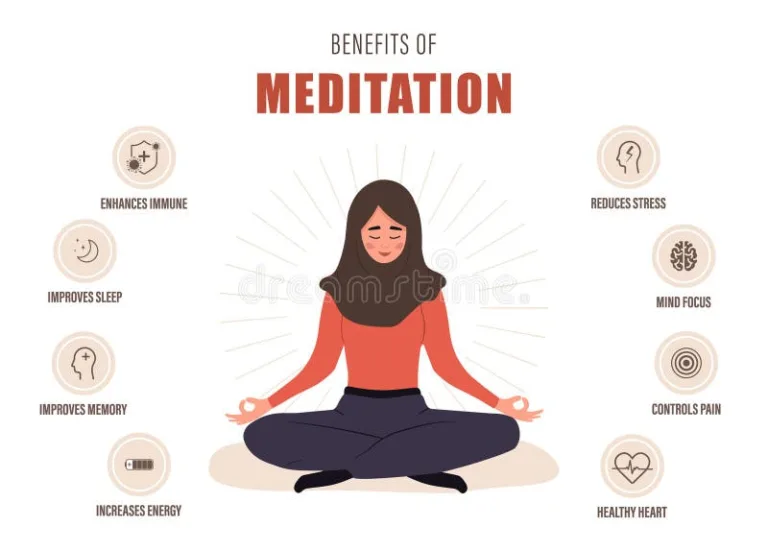Do Happy People Live Longer? Harvard’s 80-Year Study Reveals The Truth

Harvard’s groundbreaking 80-year study gives us a clear answer about whether happy people live longer. The research project, which began in 1938 with 268 Harvard sophomores, stands as one of the longest studies of adult life.
The results paint a compelling picture. Close relationships matter more than social class, IQ, or genetics when it comes to happiness and longevity. The research showed that people’s relationship satisfaction at 50 was a better predictor of their physical health at 80 than their cholesterol levels. Robert Waldinger, the study’s director, puts it simply: “Loneliness kills” – with effects similar to smoking or alcoholism.
This piece delves into these remarkable findings about happiness and longevity, supported by decades of research. The science-backed secrets to a longer, healthier life include everything from social connections to practical strategies that help people stay happy.
The Harvard Study: 80 Years of Tracking Happy Lives

Image Source: Harvard Gazette
The Harvard Study of Adult Development started in 1938 during the Great Depression with a bold aim: to find the secrets of healthy and happy living by doing this with people’s lives over decades [1]. What started as a modest research project has evolved into the longest in-depth longitudinal study on human life that ever spread [2].
Origins and methodology of the landmark research
The research team recruited 268 Harvard sophomores (including future President John F. Kennedy) to join what they called the Grant Study [3]. The original researchers wanted to learn what made up “normal” development and what factors helped people thrive, rather than focusing on disease or pathology [1].
The research approach was remarkably complete from day one. Participants went through regular physical examinations, filled out questionnaires every two years, and sat for in-depth interviews where they talked about their hopes, fears, disappointments, and achievements [4]. The study grew to include:
- Blood collection for DNA testing
- MRI scans to get into internal organs
- Observations of participants interacting with loved ones
- Standardized psychological assessments
- Medical record collection approximately every five years [5]
Clark Heath, the first director (1938-1954), shaped the study around that era’s focus on genetics and biological determinism [1]. The research evolved to include newer scientific methods and changing views on human development as leadership changed through its four directors.
From Harvard sophomores to diverse participants
This research stands out because of how it grew over the decades. Researchers added the Glueck Study of Juvenile Delinquency in the 1970s, which had tracked 456 disadvantaged, non-delinquent inner-city youths from Boston neighborhoods since 1940 [6].
The research scope grew to include:
- The wives of the original participants in both studies [1]
- More than 1,300 children of the original participants [2]
- Second-generation participants, which finally achieved gender parity [3]
The addition of these groups boosted the study’s applicability, though the original cohorts were limited to white men (matching Harvard’s demographic makeup in the 1930s) [3]. Robert Waldinger, the current director, explains that while they thought over recruiting new participants to improve diversity, they ended up deciding against it since those individuals wouldn’t have the same longitudinal data [3].
Why this study matters more than others
The Harvard Study stands alone in scientific literature for several clear reasons. The study provides an unmatched 80+ year window into human development across generations [5]. While most studies run for just a few years or depend on people’s memories of past events, this research gives immediate documentation of lives as they unfold.
The study’s intensive data collection creates a full picture of human flourishing compared to shorter or narrower studies. Researchers can spot patterns that might be missed in snapshot studies because they gather physical, psychological, and social information at regular intervals [5].
The findings have stayed remarkably consistent in a variety of populations, which matters most. Waldinger and his co-director Marc Schulz point out, “The capacity of relationships to affect our wellbeing and health is universal” [4]. This consistency adds tremendous weight to their core finding that good relationships protect our health and happiness more than money, fame, or even cholesterol levels [1].
Today, the study tracks third-generation participants. This landmark research offers unique insights into what truly makes a happy, healthy life possible by following people’s lives across decades and generations.
Resources:
- Harvard Study of Adult Development: adultdevelopmentstudy.org
- Harvard University “In Focus: Happiness”: harvard.edu/in-focus/happiness
- Harvard Medical School: health.harvard.edu
Key Findings: How Happiness Affects Longevity
The Harvard Study reveals a remarkable truth: happy people do indeed live longer. Research shows powerful biological and social mechanisms that link positive emotions to a longer life. Let’s get into what decades of research tell us about this fascinating relationship.
The surprising link between relationships and lifespan
The most striking finding shows how our social connections shape our lifespan. People who managed to keep warm relationships lived longer. Loneliness increased mortality risk by 26-29% [7]. This makes social isolation just as deadly as smoking or alcoholism [8].
Scientists found that relationship satisfaction at age 50 predicted physical health at age 80 better than cholesterol levels or genetics [8]. People with strong social support networks showed:
- Lower risk of heart disease, stroke, and reduced lung function [9]
- Better immune system functioning [10]
- Decreased inflammation [10]
- Improved cardiovascular health [10]
Our biology responds to social integration in measurable ways. A detailed study showed that high social integration reduced inflammation risk in adolescence just like physical activity [11]. Older adults faced worse effects from social isolation on their blood pressure than from diabetes [11].
Happiness vs. wealth and fame: What really matters
In stark comparison to this, wealth doesn’t guarantee happiness or longevity. Earlier research suggested happiness increased with income up to $75,000 before leveling off. New studies paint a different picture [12].
Most people’s happiness grows with their income without hitting a ceiling. The sort of thing i love is this revealing exception: “If you’re rich and miserable, more money won’t help” [12]. This explains why Harvard study’s happiest participants weren’t the wealthiest or most famous—they had the strongest relationships [8].
Money helps well-being by improving conditions for the unhappiest people. Research shows that rising incomes reduce the spread of happiness levels, with fewer people reporting very low happiness scores [13]. Wealth protects against extreme unhappiness rather than guaranteeing exceptional happiness.
Gender differences in happiness effects
Research points to notable differences in happiness’s effects on men and women. Studies show that happiness protects men more strongly against mortality than women [14]. This challenges the idea that happiness affects everyone equally.
Women score higher on global happiness and life satisfaction metrics. Yet they also report more negative emotions like depression and loneliness [6]. Researchers call this the “female happiness paradox” [6].
A 2023 study found “no evidence of gender differences” in how happiness affects mortality risk [15]. Both men and women gain similar longevity benefits from happiness through psychological and physical health factors [15].
Women live longer than men in most countries but often spend more years feeling unhappy [16]. This shows that a longer life doesn’t always mean a better one—a key point when we look at happiness and longevity together.
Resources:
- Harvard Health Blog: health.harvard.edu/blog
- Harvard Study of Adult Development: adultdevelopmentstudy.org
- National Institutes of Health: nih.gov
The Science Behind a Happy Life
A complex biological symphony plays out in our bodies every time we smile, and this affects our physical health in amazing ways. Research shows that happiness does more than make us feel good—it creates real, measurable changes in our bodies that help us live longer.
How positive emotions affect physical health
Our emotional state plays a direct role in our physical wellbeing. People who feel more positive emotions show lower blood pressure, have a smaller chance of heart disease, and deal with fewer aches and pains [3]. Happiness strengthens physical health in many different ways.
A detailed look at research shows that happy people have a 35% lower risk of death over about five years compared to those who aren’t as happy [3]. This benefit is strongest in healthy people but shows up even in those with long-term health conditions.
One really interesting study had 350 adults who agreed to be exposed to the common cold virus. After spending five days in quarantine, the people who felt the most positive emotions were much less likely to get cold symptoms [3]. Their happiness had made their immune system stronger.
Stress reduction and immune system benefits
Happiness helps us live longer mainly by cutting down stress. Happy people’s cortisol levels (the main stress hormone) are 32% lower than unhappy people’s levels during stressful times [5]. Their bodies don’t suffer as much from the harmful inflammation that comes with long-term stress.
Studies about immune system markers show that happier people have:
- Better antibody responses to vaccines [3]
- Lower inflammation markers [17]
- Faster recovery from stress [3]
- Better working white blood cells [17]
Your body builds up better defenses against illness when it feels positive emotions often. This might explain why the happy nuns in one famous study lived 7-10 years longer than the ones who weren’t as cheerful [3].
The biological mechanisms of happiness
Brain chemistry creates a complex dance at happiness’s core. Scientists call our reward system a mix of four main “feel-good” neurotransmitters:
Dopamine gets us to look for pleasant experiences and expect rewards [18]. Serotonin keeps our mood balanced and makes us feel good [19]. Endorphins help kill pain naturally [19]. Oxytocin, which people often call the “love hormone,” helps us bond with others [20].
Scientists have found that the nucleus accumbens works as the brain’s happiness center [18]. This area responds to these neurotransmitters and creates feelings of pleasure that teach us to repeat actions that make us feel good [18].
Different types of happiness seem to affect us in different ways. A 2021 study found that joy, pride, contentment and awe specifically led to lower inflammation markers [1]. Awe showed the strongest link to better immune system function [1].
Happiness makes our biology better, which creates an “upward spiral” where good feelings improve physical health, and better health creates more good feelings [21].
Resources:
- Harvard Health: health.harvard.edu/mind-and-mood
- Greater Good Science Center: greatergood.berkeley.edu
- National Institutes of Health: nih.gov
Building Stronger Relationships for a Longer Life
Social connections build the foundation for happiness and a longer life. Research shows that people with strong relationships are 50% more likely to survive compared to those who are socially isolated [22]. The evidence speaks for itself—social relationships affect our health just as much as smoking and obesity.
Quality vs. quantity in social connections
Older adults benefit nowhere near as much from the number of friends as they do from meaningful relationships [23]. Young people might thrive with larger social networks, but seniors find better protection against depression and health issues through close, meaningful connections instead of many casual acquaintances. Studies show that older adults who maintain close relationships with family members and friends experience fewer depressive symptoms [23]. The impact is remarkable—strong social connections cut the risk of early death from all causes by 50%, which equals smoking up to 15 cigarettes daily [24].
Maintaining friendships through life transitions
Life brings many changes—career shifts, moves, marriages, parenthood—that test even the strongest friendships. Americans today have only one close friend on average, which makes it vital to protect these bonds as life evolves [25].
Successful friendships during transitions require:
- Open communication about changing needs and feelings
- Setting aside intentional time to spend together
- Following through on commitments consistently
- Being flexible and understanding of changing circumstances
As psychologist Irene Levine notes, “Long-standing friendships are both flexible and forgiving… they allow their friends to grow and change as they themselves grow and change” [25].
How to deepen existing relationships
Strong relationships need dedicated effort, but the rewards in health and happiness make it worthwhile. Research proves that people who practiced relational mindfulness built more trusting, intimate connections [26]. You can strengthen your relationships by showing gratitude often, which leads to greater satisfaction [2]. It also helps to be vulnerable—sharing real thoughts and feelings creates stronger bonds than surface-level conversations [27].
Our relationships’ quality shapes our life’s quality [28]. When we invest in deep, meaningful connections, we gain happiness and potentially add years to our lives.
Resources:
- Harvard Health: health.harvard.edu
- National Institutes of Health: nih.gov
- American Psychological Association: apa.org
Daily Habits That Increase Both Happiness and Longevity
Daily habits can make a huge difference to your happiness and how long you live. Research shows that our everyday choices shape our feelings and lifespan.
The power of gratitude practices
Being thankful does more than lift your spirits—it could help you live longer. A newer study, published by Harvard found people who showed the most gratitude had a 9% lower death risk over three years compared to those who showed the least [29]. A few minutes each day spent writing down what you’re grateful for or sending thank-you notes creates what scientists call a “savoring exercise” that helps build resistance to negative emotions [29]. Gratitude also boosts physical health by making your immune system stronger and lowering blood pressure [30].
Physical activity and its dual benefits
Regular movement rewards you in two big ways. Just 15 minutes of daily activity could add three years to your life, and every extra 15 minutes cuts your early death risk by 4% [31]. Exercise gets your brain to release dopamine, serotonin, and endorphins that make you feel better and sleep better [32]. The World Health Organization suggests at least 150 minutes of moderate-to-vigorous activity each week to get the best results [33].
Mindfulness and stress management techniques
Mindfulness creates amazing changes throughout your body and mind. Studies prove regular meditation helps control stress, anxiety, depression, insomnia, and high blood pressure [4]. The 100-Breath Mindfulness Practice—where you focus on 100 breaths in a row—helps your nervous system switch from stressed to peaceful [34]. This calming effect reduces inflammation and makes your immune system stronger [35].
Sleep quality and its impact on mood and health
Good sleep might be your best tool to boost happiness and live longer. Studies show you need 7-8 hours each night, as sleeping more or less can hurt your health [31]. Your sleep quality predicts how satisfied you are with life better than many personality traits [36]. Poor sleep raises your risk of depression, heart disease, and diabetes while weakening your immune system [37]. Sleep quality affects your overall wellbeing more than how long or when you sleep [38].
Resources:
- Harvard Health: health.harvard.edu
- National Institutes of Health: nih.gov
- Mayo Clinic: mayoclinic.org
Conclusion
Science confirms what people have suspected for years – happiness makes you live longer. Harvard’s landmark 80-year study shows that strong relationships, not wealth or genetics, are crucial to happiness and a longer life.
Quality social connections help people live longer, healthier lives. Their bodies demonstrate lower inflammation levels, better immune responses, and fewer heart problems. Good daily habits like showing gratitude, staying active, and sleeping well create lasting effects that improve both wellbeing and lifespan.
This research challenges what we think makes life worth living. Society values career success and material wealth, but data reveals meaningful relationships as happiness’s true foundation. The study proves close connections protect our physical and mental health better than money, fame, or standard medical indicators.
Happiness isn’t an impossible dream – it’s a skill anyone can develop through mindful choices and habits. Small steps like mindfulness practice, friendship building, and better sleep routines create positive changes that grow stronger with time.
The evidence couldn’t be clearer: Today’s investment in relationships and happiness shapes our current wellbeing and future health. Each person’s path to happiness differs, but science proves that strong connections and positive daily habits are the best way to live a joyful, longer life.
Resources:
- Harvard Study of Adult Development: adultdevelopmentstudy.org
- National Institute on Aging: nia.nih.gov
- World Health Organization: who.int/mental-health
FAQs
Q1. How does happiness impact longevity according to the Harvard study?
The Harvard study found that happiness, particularly through strong social connections, significantly increases longevity. People with warm relationships lived longer, while loneliness increased mortality risk comparable to smoking or alcoholism.
Q2. Are wealth and fame key factors in happiness and longevity?
Contrary to popular belief, the study revealed that wealth and fame are not the primary determinants of happiness or longevity. Instead, the quality of relationships proved to be more important for both well-being and lifespan.
Q3. What daily habits can increase both happiness and longevity?
Regular gratitude practices, physical activity, mindfulness techniques, and maintaining good sleep quality are daily habits that can boost both happiness and longevity. Even modest daily exercise can add years to your life and improve mood.
Q4. How do social connections affect our health?
Strong social connections have a powerful impact on health, reducing the risk of premature death by up to 50%. Quality relationships improve immune function, lower inflammation, and enhance cardiovascular health.
Q5. Can unhappy childhoods be overcome for better long-term well-being?
Yes, the study found that while a happy childhood is beneficial, loving relationships in adulthood can help overcome the negative effects of an unhappy childhood. Developing good coping skills and maintaining strong social connections as an adult can significantly improve long-term well-being and health.
References
[1] – https://www.ama-assn.org/delivering-care/public-health/why-positive-emotions-may-be-next-big-predictor-health
[2] – https://hr.umich.edu/benefits-wellness/health-well-being/mhealthy/more-well-being-resources/mhealthy-portal/5-evidence-based-strategies-positive-connections
[3] – https://greatergood.berkeley.edu/article/item/six_ways_happiness_is_good_for_your_health
[4] – https://www.mayoclinic.org/healthy-lifestyle/consumer-health/in-depth/mindfulness-exercises/art-20046356
[5] – https://www.healthline.com/nutrition/happiness-and-health
[6] – https://link.springer.com/article/10.1007/s11205-024-03334-7
[7] – https://www.health.harvard.edu/mind-and-mood/even-a-little-socializing-is-linked-to-longevity
[8] – https://news.harvard.edu/gazette/story/2017/04/over-nearly-80-years-harvard-study-has-been-showing-how-to-live-a-healthy-and-happy-life/
[9] – https://www.health.harvard.edu/blog/if-you-are-happy-and-you-know-it-you-may-live-longer-2019101618020
[10] – https://ahs.atlantichealth.org/about-us/stay-connected/news/content-central/2024/strong-social-connections-boost-your-health-and-longevity.html
[11] – https://pmc.ncbi.nlm.nih.gov/articles/PMC4725506/
[12] – https://penntoday.upenn.edu/news/does-more-money-correlate-greater-happiness-Penn-Princeton-research
[13] – https://insights.som.yale.edu/insights/as-incomes-rise-variability-in-happiness-shrinks
[14] – https://pmc.ncbi.nlm.nih.gov/articles/PMC10354981/
[15] – https://bmcgeriatr.biomedcentral.com/articles/10.1186/s12877-023-04030-w
[16] – https://share-eric.eu/research-results-details/do-women-in-europe-live-longer-and-happier-lives-than-men
[17] – https://www.scientificamerican.com/article/how-happiness-boosts-the-immune-system/
[18] – https://science.howstuffworks.com/life/neurochemistry-of-happiness.htm
[19] – https://www.houstonmethodist.org/blog/articles/2021/sep/brain-chemistry-your-mood-4-hormones-that-promote-happiness/
[20] – https://pmc.ncbi.nlm.nih.gov/articles/PMC4449495/
[21] – https://greatergood.berkeley.edu/article/item/how_positive_emotions_improve_our_health
[22] – https://pmc.ncbi.nlm.nih.gov/articles/PMC2910600/
[23] – https://www.psychologytoday.com/us/blog/media-spotlight/201911/is-quality-better-quantity-in-social-relationships
[24] – https://www.health.harvard.edu/healthbeat/strengthen-relationships-for-longer-healthier-life
[25] – https://www.talkspace.com/blog/friends-different-life-stages/
[26] – https://www.betterup.com/blog/how-to-deepen-a-relationship
[27] – https://thebritishschoolofexcellence.com/life-skills/10-simple-ways-to-deepen-your-connections/
[28] – https://www.ie.edu/center-for-health-and-well-being/blog/other-people-matter-the-importance-of-strong-social-connections/
[29] – https://www.health.harvard.edu/blog/gratitude-enhances-health-brings-happiness-and-may-even-lengthen-lives-202409113071
[30] – https://www.cnn.com/2024/07/12/health/gratitude-benefits-longer-life-wellness/index.html
[31] – https://www.healthline.com/nutrition/13-habits-linked-to-a-long-life
[32] – https://www.heart.org/en/news/2023/03/17/these-healthy-habits-might-also-lead-to-a-happier-life
[33] – https://www.cnn.com/2022/08/23/health/longevity-live-longer-tips-wellness/index.html
[34] – https://longevity.stanford.edu/lifestyle/2023/10/03/practice-of-the-month-100-breath-mindfulness-practice-to-reduce-stress/
[35] – https://www.the-well.com/editorial/health-coach-tip-mindfulness-meditation-and-longevity
[36] – https://pmc.ncbi.nlm.nih.gov/articles/PMC6121950/
[37] – https://www.frontiersin.org/journals/sleep/articles/10.3389/frsle.2023.1118384/full
[38] – https://pmc.ncbi.nlm.nih.gov/articles/PMC10016705/






